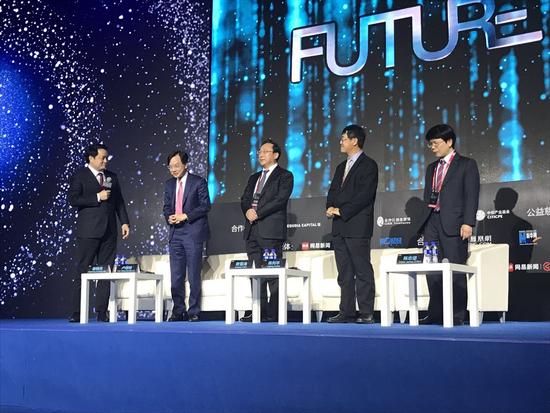Top experts: Cancer treatment will have a big breakthrough in the next 5-10 years
On January 15th, the future forum 2017 annual meeting and the first future science awards ceremony was held in Beijing. At the roundtable forum in the afternoon, several top experts in cancer research discussed the current state of cancer treatment. Professor of UTC Cancer Research at Yale University, Professor of Department of Immunology, Department of Medicine and Department of Dermatology at Yale University School of Medicine, and Director of the Department of Oncology and Immunity at Yale University Cancer Center, said that cancer research used to be explored in the dark, but currently Tumor immunotherapy has found the right path, and he is confident that he will cure more cancer patients in the next 5-10 years. Associate Dean of the School of Medicine, The Chinese University of Hong Kong (Research), Director of the Li Ka Shing Institute of Health Sciences and Head of the Department of Chemical Pathology, Lu Yuming, winner of the 2016 Future Science Awards - Life Sciences Award, said that life sciences are in a golden age, hope for the future The researchers worked hard.
In the field of cancer research, research in many fields is advancing in different directions, and the future may be combined with each other. In this forum, a number of experts introduced the progress in their respective fields.

Cao Xuetao, academician of the Chinese Academy of Engineering, dean of the Chinese Academy of Medical Sciences, and president of Peking Union Medical College, said that precision medicine comes from the philosophy of Chinese medicine. The Chinese government is very concerned about precision medicine and provides many economic support to establish medical centers. Precision medicine enables people to better find tumor targets, so that patients can find better ways to treat cancer, so that patients can achieve better results at a lower cost.
Professor of UTC Cancer Research at Yale University, Professor of Department of Immunology, Department of Medicine and Department of Dermatology, Yale University School of Medicine, and Director of the Department of Tumor Immunity, Yale University Cancer Center, believes that the treatment of cancer will eventually return to prevention. More treatments have limitations, and early prevention and treatment are the most important. Cancer immunotherapy was in place 20 or 30 years ago. We found that it is not effective in patients with advanced cancer, because the immune system of cancer patients has been greatly damaged. Display Ping and his team are currently doing research to motivate people's own immune system to function properly, and he is confident that he will cure more cancer patients in the next 5-10 years.
Biochemist, academician of the American Academy of Sciences, Howard? Researcher at the Hughes Medical Institute, Professor of Molecular Biology, Southwestern Medical Center, University of Texas, George of Biomedical Sciences? Chen Zhijian, a professor of McGregor and a director of the Center for Inflammation Research, believes that targeted therapy is currently a treatment for preheating, and will produce more effective methods in the future. The problem it has to solve is to find out what is wrong with the patient and then treat it. At present, this therapy has achieved good results in some diseases. In the future, targeted therapy needs to be combined with immunotherapy and other therapies because it stimulates the immune system to some extent. (spa)
Inactivated Disposable Virus Sampling Tube
Inactivated Disposable Virus Sampling Tube is based on Hank's balanced salt solution enriched with inactivator and nucleic acid protective agents.
It is used for nucleic acid extraction of samples such as viruses,mycoplasma,chlamydia and ureaplasma. Inactivated Disposable Virus Sampling Tube is an upgrade from the Hank's solution. Additional various components,such as BSA,HEPES,amino acids,cryoprotectant,etc.,are added to enhance the virus integrity. It can be used for nucleic acid extraction of virus,mycoplasma, chlamydia and ureaplasma samples and later virus isolation. The pH of the preservation solution is 7.4±0.5. The medium contains antibiotics and antimycotics for the purpose of inhabitation of bacteria and yeasts overgrowth.
It helps to maintain the cellular integrity and preserve the viruses, mycoplasma, chlamydiae and ureaplasma.
Disposable virus sampling tube,Inactivated disposable virus tube,virus sampling tube,Inactivated disposable virus sampling tube,Inactivated VTM
Shenzhen Uni-medica Technology Co.,Ltd , https://www.unimedicadevice.com